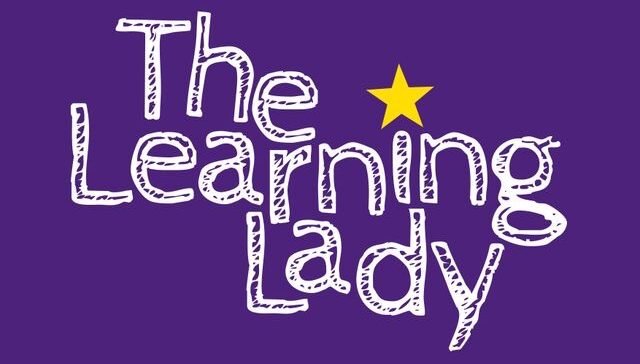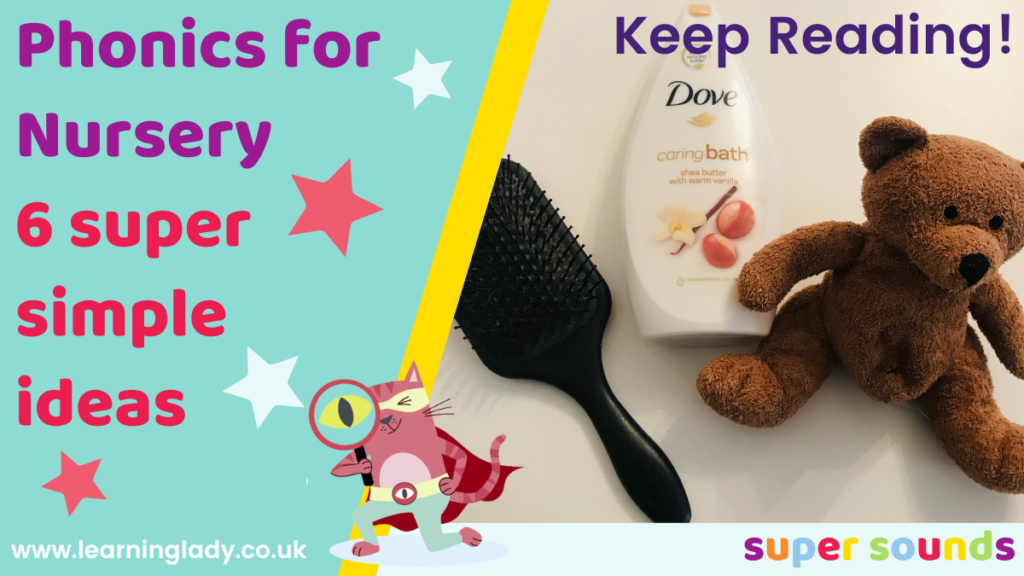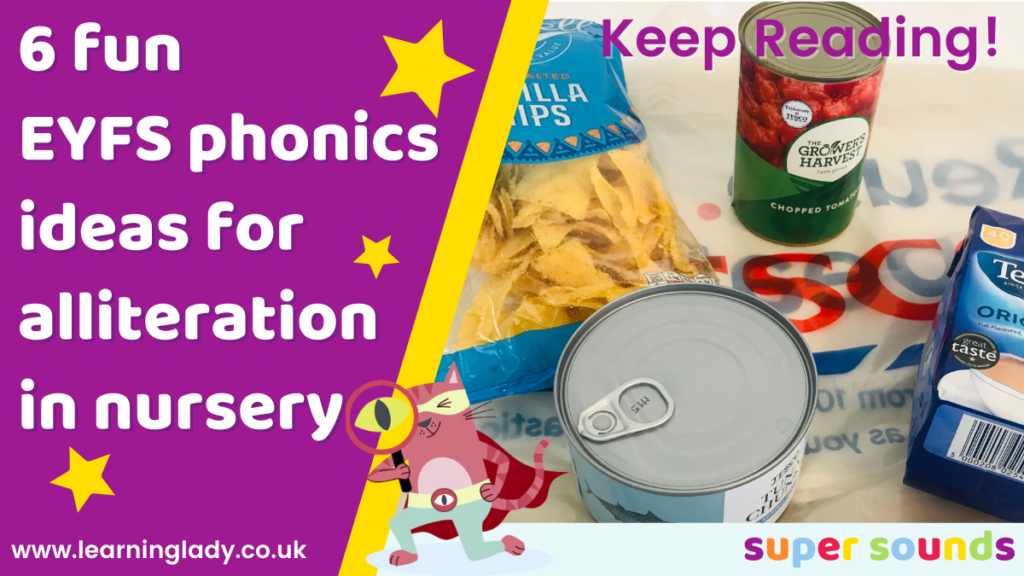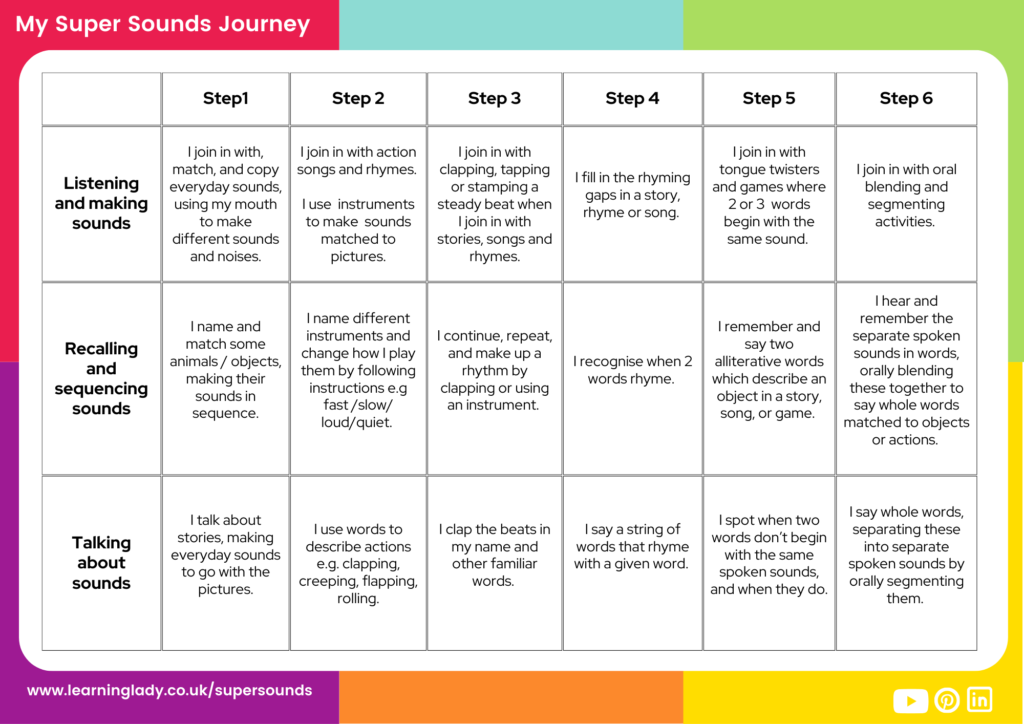An awareness of alliteration is an essential part of phonics for nursery, but where do we start and what should this look like?
The staff at Little Learners Nursery had been developing their nursery phonics activities but they were anxious about alliteration.
This is the story of how we pimped up their provision for perfectly prepared preschoolers!
What is alliteration
Developing an awareness of alliteration as part of nursery phonics is often misunderstood.
Most of the Little Learners staff had never heard of alliteration or why it’s an important part of phonics in nursery.
Some staff thought alliteration was to do with initial sounds. This is an easy mistake to make. A common misconception is that alliteration is about introducing a collection of objects or pictures that all begin with the same sound like:
- Sock
- Sack
- Sandwich
- Slippers
But this isn’t what alliteration is at all.
An essential part of nursery phonics
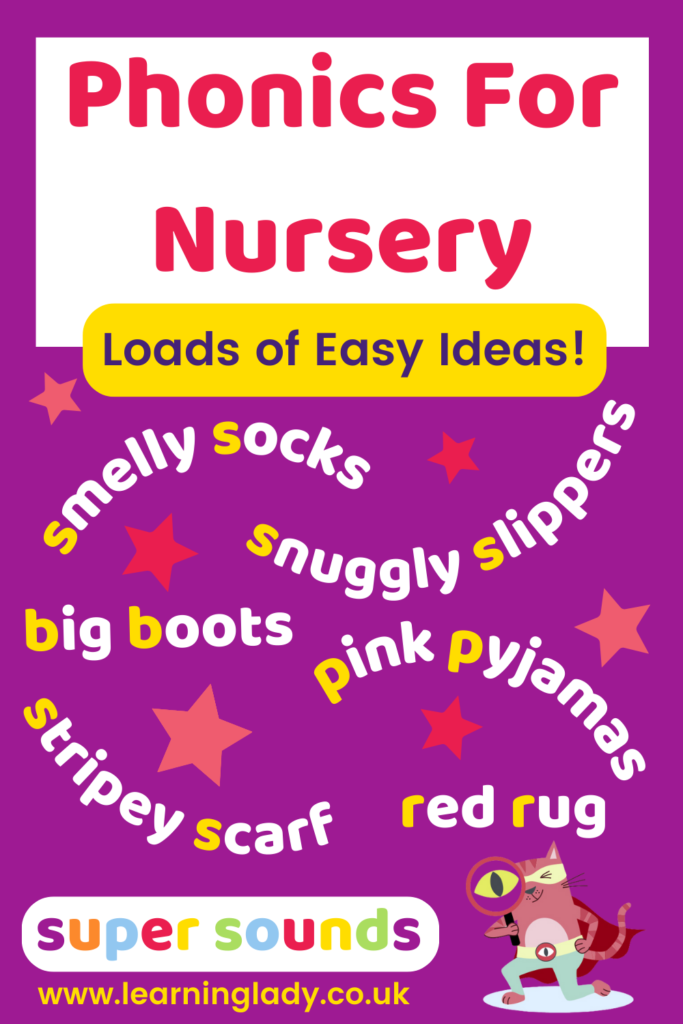
Alliteration occurs when two or more words next to each other, in a phrase or sentence, begin with the same spoken sound.
- Smelly Sock
- Santa’s Sack
- Salad Sandwich
- Snuggly Slippers
This helps preschoolers hear similarities in spoken sounds more easily before letters are introduced.
Why should phonics for 3-year-olds include alliteration?
Work at Little Learners began with a myth busting professional development session. Staff learnt about what alliteration is and why it’s a vital element of phonics for 3-year-olds.
We played lots of games to demonstrate how super simple alliteration activities improve phonemic awareness. This is the process of isolating single spoken sounds in words and a critical prephonics ingredient
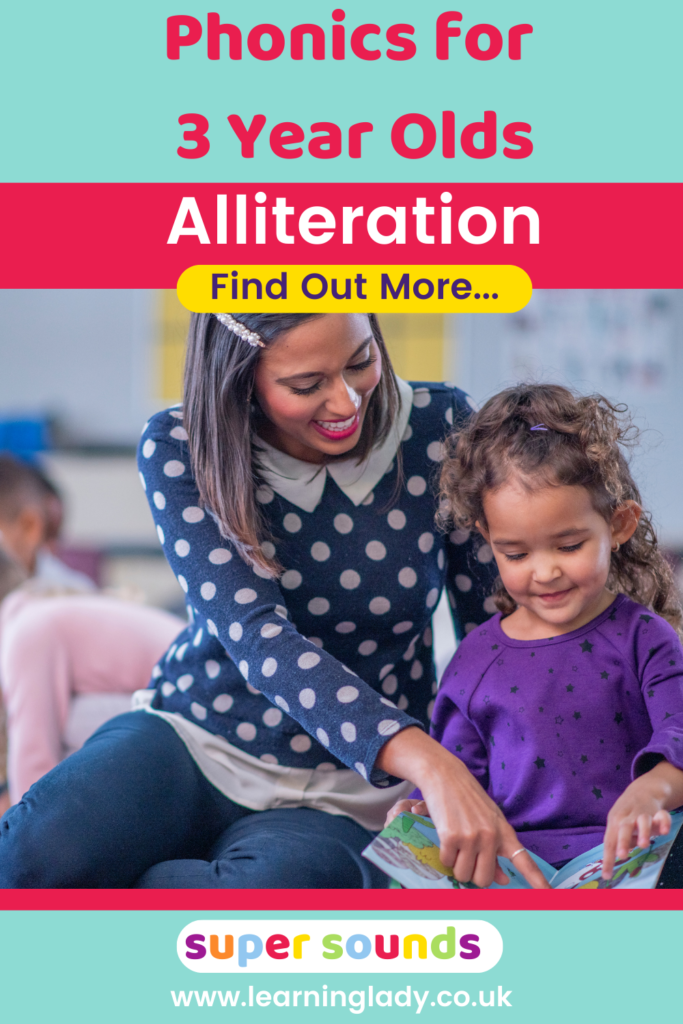
Alliteration and phonemic awareness
They learnt that, when we develop phonemic awareness with 3- and 4-year-olds, they begin to ‘tune in’ to the spoken sounds words are made of.
This is an essential step towards reading which involves hearing and saying the separate spoken sounds in words with the added complication of recognising letters too
Learn more about how to teach phonics in nursery using alliteration
If you’re new to alliteration like the staff at Little Learners and want to find out more, this super speedy explainer video about how to teach phonics in nursery is for you.
Keep Reading
You can find out everything you need to know about alliteration as part of phonics for nursery in this post…
Nursery Phonics at Little Learners
Once the staff at Little Learners understood what alliteration is and why it’s so important, they raised some issues we can all relate to.
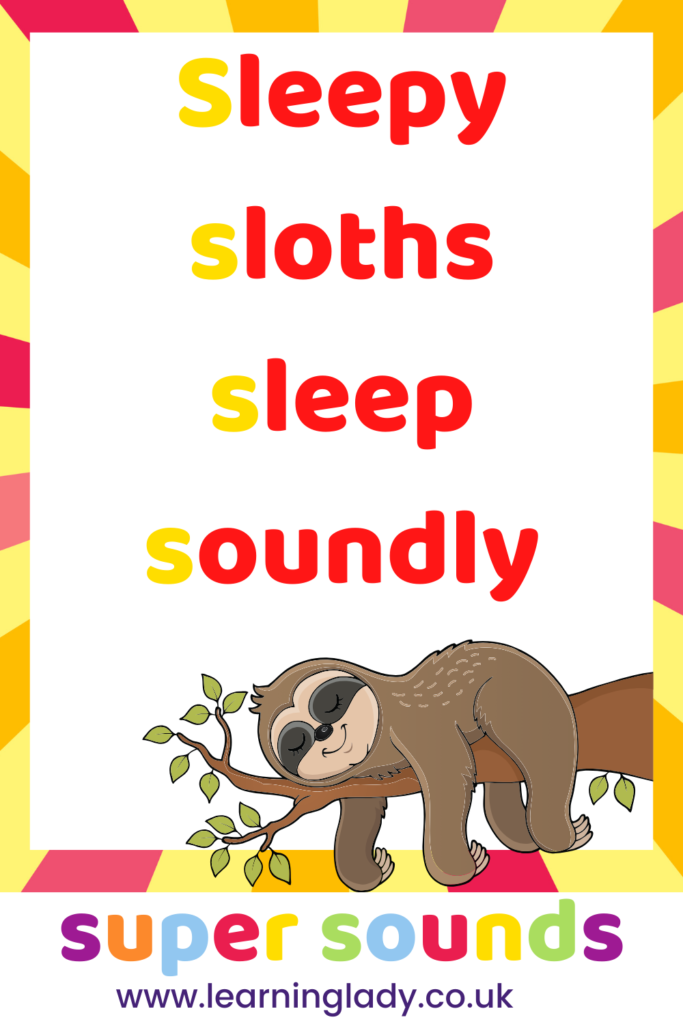
- Will the parents understand the benefits? They are more ambitious to see letters introduced
- What’s the best way to introduce alliteration without confusing the children?
- Is alliteration what schools want us to be doing?
- How will the staff know if the children are ready for alliteration?
Phonics in Nursery- A super simple progression
Through our work together, the staff at Little Learners were reassured that all phonics in nursery needs to follow a simple progression of prephonic skills.
This ensures preschoolers experience success at every step along the way and are ready for reading.
Part of school readiness
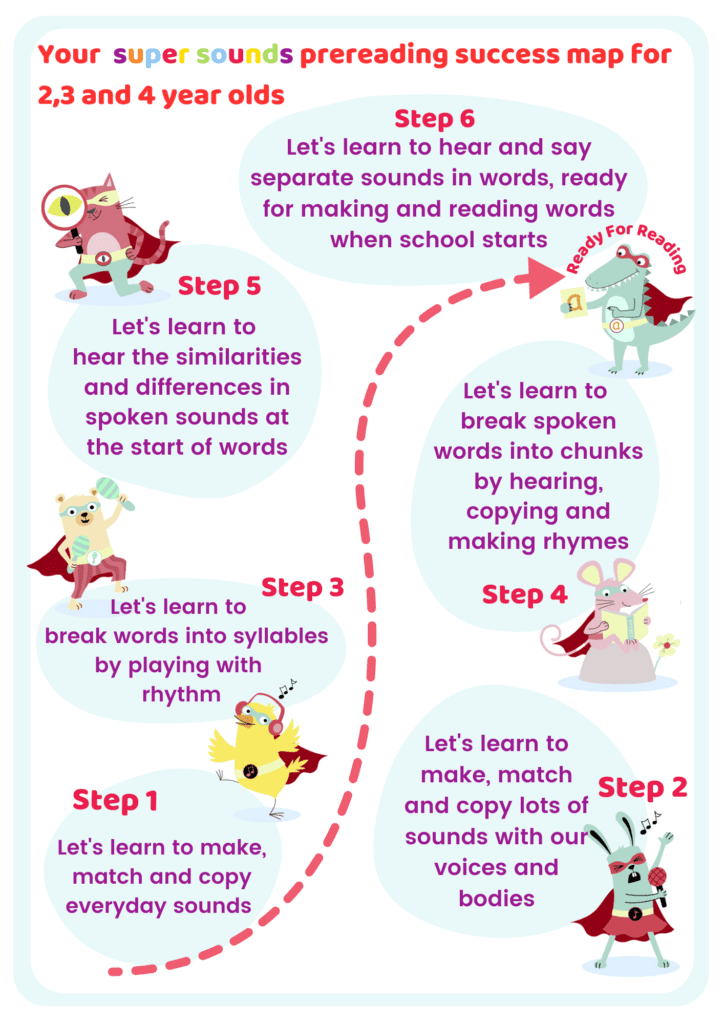
Mastery of prephonics skills is exactly what schools need before introducing a more formal approach to phonics.
If you’re wondering if your preschoolers are ready for alliteration, you can download this FREE assessment tool and prephonics progression that Little Learners used.
It will help you pinpoint the nursery phonics skills your preschoolers have mastered so far. Then, like the staff at Little Learners, you’ll instantly be able to see who is ready to play around with alliteration.
It’s reassuringly successful, and a great way of explaining your prephonics programme to parents!
Phonics nursery routines that develop alliteration
At Little Learners, we worked hard to include alliteration into everyday phonics nursery routines so the children got plenty of practise in a meaningful way.
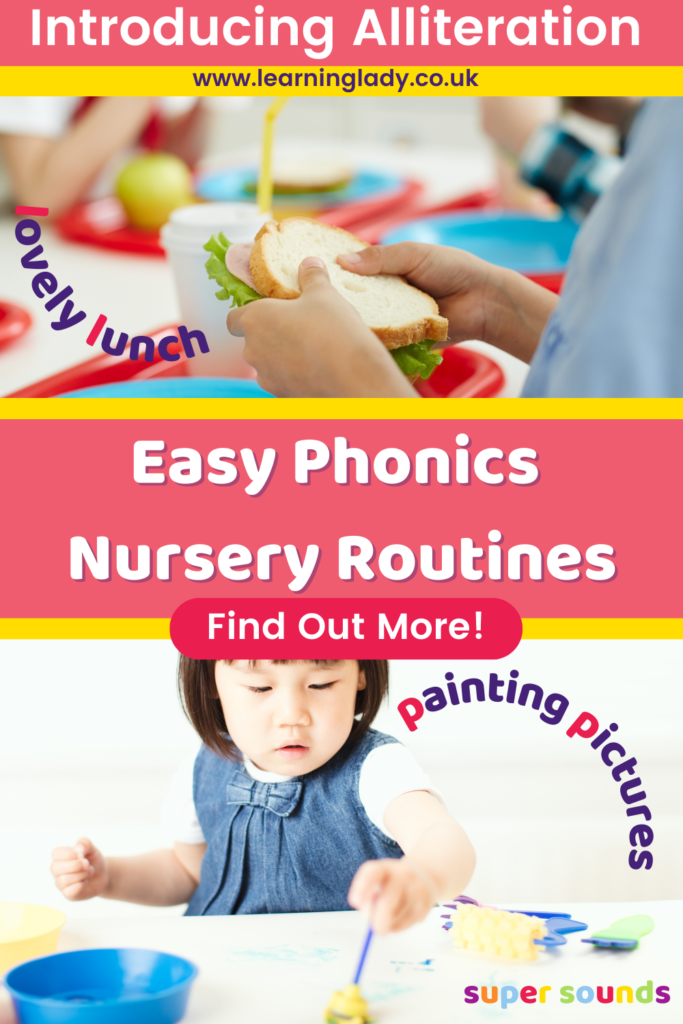
The staff were delighted that there was nothing extra to prepare, but the amount that the children were hearing alliteration increased.
We made a list of all of the routines and daily activities the children participated in. Then, we built these into super simple phrases to add to our everyday conversations.
Here are a few the staff used all the time:
- It’s time to put on our cosy coats
- Here comes our lovely lunch
- It’s super story time
- We love painting pictures
- We are brilliant builders
- Terrific tidying everyone
Everyday resources for Nursery phonics games
As the staff at Little Learners grew in confidence, they kept thinking of everyday examples for developing alliteration.
If the preschoolers were playing with familiar objects they could simply focus on the alliteration.
This gave the children the brain space to be thinking about the sounds at the start of the words, rather than remembering the words for new or unfamiliar objects.
The Benefits!
Using real objects saved hours of preparation time. It meant that alliteration would be a sustainable part of nursery phonics games every single year.
Using real objects to teach alliteration really helped the concept of alliteration ‘to stick’ At Little Learners.
The preschoolers began to think about alliteration as part of everyday life.
They started using alliterative phrases more in preschool and at home.
Perfect for additional practise.
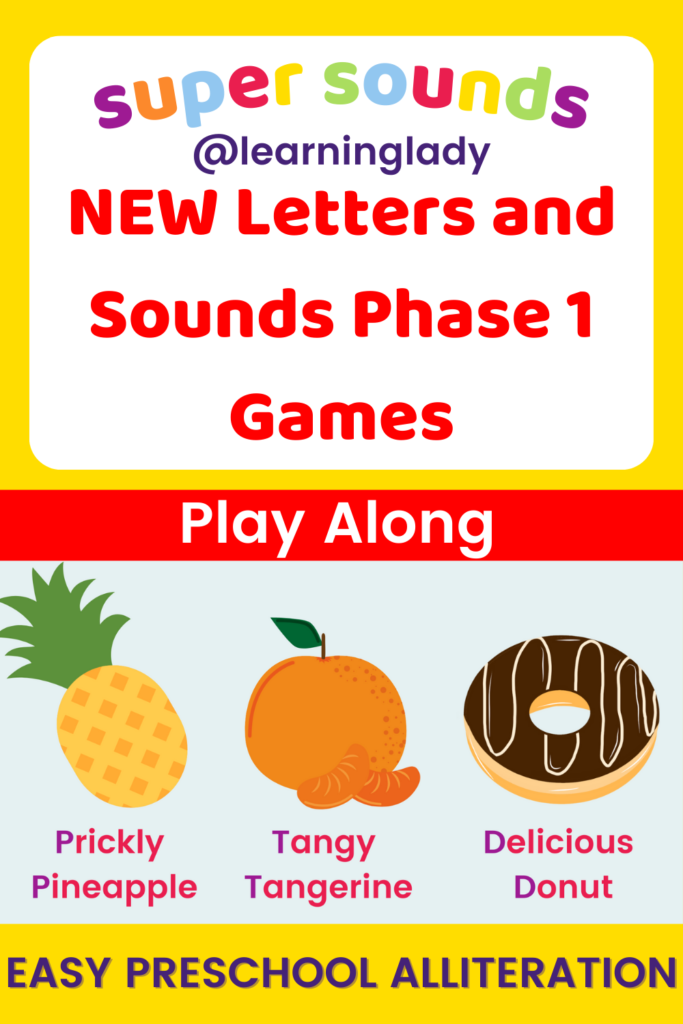
Helping families to understand the importance of phonics in nursery
The team at Little Learners explained that the term ‘alliteration’ made this simple prephonic skill sound more complicated than it actually is, especially when they explained what the children had been learning to parents.
We used these super speedy interactive videos as a practical example of what phonics in nursery looks like at the point when alliteration is introduced.
Prephonics fun for families | Alliteration
Instant Nursery phonics activities for teaching alliteration
Here’s a collection of super simple alliteration games that made a HUGE difference at Little Learners.
Taken from the award winning prephonics programme Super Sounds, you can add these to your nursery phonics planning today, with instant results
Alliteration Phonics For Nursery | Magical Words
The children at Little Learners never got tired of playing this magical game. The staff loved how they could adapt the game too. They began with just 2 toys, building up to 4 or 5 as the children became more confident.
Alliteration Phonics For Nursery | Hippo Has a Hat
The preschool children were already used to playing dice games because the staff used these for their prephonics sessions in all kinds of different ways.
Dice games had been particularly helpful for teaching the children to take turns, and this cheap set of dice that the nursery team used were a prized possession!
Hippo Has a Hat was already a firm favourite when the staff introduced this game to the children. This quickly became one of those nursery phonics games that the children would return to again and again.
Alliteration Phonics For Nursery | Winter Warmers
The staff at Little Learners loved this game because it supported the children with getting dressed too! It was perfect for developing language alongside everyday dressing routines and helping the preschoolers become more independent.
The Little Learners Journey
As our time of working together drew to a close, the team at Little Learners couldn’t believe the learning journey that they had been on.
The initial anxiety and belief that alliteration is just too hard for Nursery was real.
But the Nursery children had shown the adults that introducing alliteration in nursery is important, super simple and lots of fun!,
Nursery Phonics Planning
If your preschoolers enjoyed playing these easy peay alliteration games and want the same success story as Little Learners, Super Sounds is what you need.
It’s an award-winning, tried and tested prephonics programme designed specifically for 2,3 and 4 year olds, just like yours.
Perfect for using before every phonics programme, Super Sounds is uniquely written for a fun and engaging approach to teaching a progression of prephonic skills step by step.
Whether you want fresh ideas as an alternative to Phase 1 Phonics, or you’re new to phonics in nursery and don’t know where to start, Super Sounds is waiting for !
More Inspiration for Phonics For Nursery
Super Sounds by The Learning Lady
Ready for Reading – Preschool Online Training Course
FREE Recommended Reading books for Preschool Phonics
6 fast and fun eyfs phonics ideas for developing alliteration in nursery
6 ideas and fun activities for phonemic awareness that your preschoolers will love
More Tongue Twisters | Easy Phase 1 Phonics activities
Preschool dinosaur Game | Alliteration Phonics Fun
What comes before Phonics by Sally Neaum
